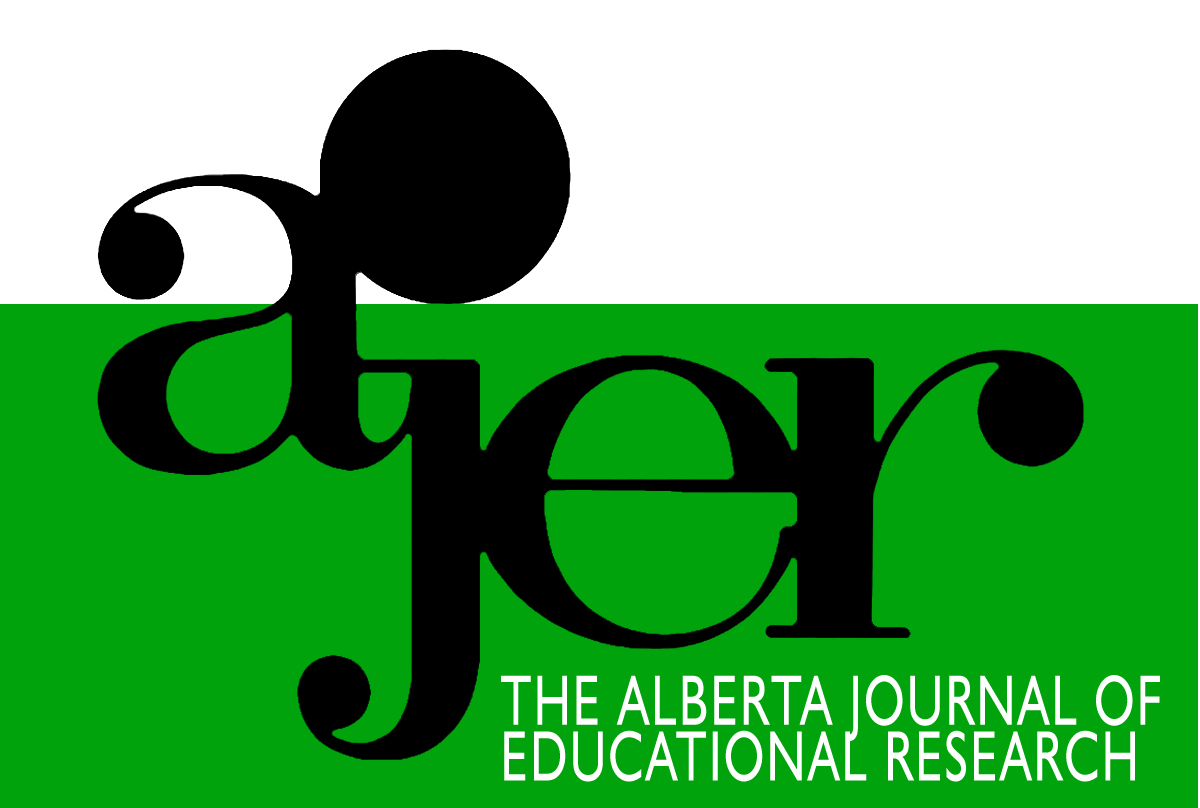Attitudes of the Macedonian Preschool Teachers toward Students with Disabilities
DOI:
https://doi.org/10.55016/ojs/ajer.v62i2.56190Keywords:
inclusive education, preschool teacher’s attitudes, students with disabilities, Mots clés, éducation inclusive, attitudes des enseignants du préscolaire, élèves avec handicapsAbstract
Preschool teachers are seen as key persons to implement inclusive education. Positive attitudes are therefore argued as playing a considerable role in implementing this educational change successfully. The aim of this study was to examine what attitudes Macedonian preschool teachers hold towards early inclusive education; which variables are related to their attitudes. We examined the impact of the teaching experience, age of the teachers, and experience of work with children with special needs. The Opinions Relevant to Integration of Students with Disabilities (ORI) was administered to 94 preschool teachers at 2 preschool institutions. The results of this study showed, in general, that the preschool teachers’ attitudes were more negative than positive towards the inclusion of students with disability (meaning of students with intellectual impairments, visual impairments, hearing impairments, autism spectrum disorder, physical impairments and ADHD). No significance was found in relation to the grade level of education of preschool teachers, occupational experience and previous teaching experience with students with disability.
Les enseignants du préscolaire sont considérés comme des personnes clés dans la mise en œuvre des politiques éducatives intégratrices. Les attitudes positives jouent donc un rôle considérable dans la réalisation des changements éducatifs. L’objectif de cette étude était d’examiner les attitudes qu’ont les enseignants du préscolaire de la Macédoine face à l’éducation préscolaire inclusive et de déterminer quelles variables influençaient leurs attitudes. Nous avons examiné l’impact de l’expérience en enseignement, l’âge des enseignants et l’expérience de travail avec des enfants ayant des besoins spéciaux. Quatre-vingt-quatorze enseignants de deux institutions préscolaires ont répondu à un questionnaire portant sur leurs avis quant à l’intégration d’élèves présentant des handicaps. Les résultats indiquent que, de façon générale, les attitudes des enseignants du préscolaire étaient plus négatives que positives face à l’inclusion des élèves avec des handicaps (c’est à dire, ayant une déficience intellectuelle, visuelle, auditive ou physique; souffrant de troubles du spectre autistique ou atteints de TDAH). Nous n’avons pas trouvé de liens significatifs entre les attitudes et la scolarité des enseignants du préscolaire, leur expérience professionnelle et leur expérience avec des élèves présentant des handicaps.
Downloads
Published
Issue
Section
License
UNIVERSITY OF ALBERTA COPYRIGHT LICENSE AND PUBLICATION AGREEMENT
If accepted, authors will be asked to sign a copyright agreement with the following points:
A. Where there is any inconsistency between this Copyright License and Publication Agreement and any other document or agreement in relation to the same subject matter, the terms of this Agreement shall govern.
B. This document sets out the rights you are granting in relation to publication of your article, book review, or research note entitled (the “Article”) through inclusion in the academic journal titled Alberta Journal of Educational Research (the “Journal”) published through the Faculty of Education, representing the Governors of the University of Alberta (the “Journal Editor”).
C. There will be no payment to you for this publication and grant of rights. In consideration of the agreement to publish the Article in the Journal:
1. You are warranting that:
- the content of the Article is your original work, and its content does not contain any material infringing the copyright of others; or, where the Article is not entirely your original work, you have obtained all necessary permissions in writing to grant the rights you are giving in this agreement;
- the content of the Article does not contain any material that is defamatory of, or violates the privacy rights of, or discloses the confidential information of, any other person;
- the Article has not been published elsewhere in whole or in part, and you will not allow publication of the Article elsewhere without the consent of the Journal Editor;
- the names of all co-authors and contributors to the Article are:
2. You agree to license the copyright in the Article to the Journal Editor, on a worldwide, perpetual, royalty free basis; and to the extent required by the terms of this agreement. You shall retain the right at all times to be acknowledged as the/an author of the Article.
3. You further agree that the Journal Editor has the entitlement to deal with the Article as the Journal Editor sees fit, and including in the following manner;
- The right to print, publish, market, communicate and distribute the Article and the Journal, in this and any subsequent editions, in all media (including electronic media), in all languages, and in all territories, ing the full term of copyright, and including any form of the Article separated from the Journal, such as in a database, abstract, offprint, translation or otherwise, and to authorize third parties to do so;
- The right to register copyright of the Journal;
- The right to edit the Article, to conform to editorial policy as the Journal Editor sees fit.
4. If any co-author or contributor to the Article does not sign this agreement, the Journal Editor reserves the right to refuse to publish the Article.



